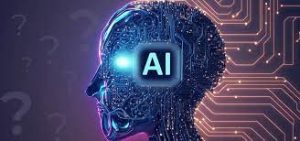Artificial Intelligence (AI):
AI refers to the development of computer systems that can perform tasks that typically require human intelligence. In digital marketing, AI can be used to automate and enhance various processes. Here are some key applications:
Content Personalization:
AI algorithms can analyze user behavior and preferences to deliver personalized content, such as product recommendations, email marketing, and website experiences.
Predictive Analytics:
AI can analyze large datasets to predict consumer behavior and trends. This information helps marketers make data-driven decisions and optimize their strategies.
Chatbots and Virtual Assistants:
AI-powered chatbots and virtual assistants can provide instant responses to customer inquiries, improving customer service and engagement.
Data Analysis:
AI can quickly analyze vast amounts of data, helping marketers gain insights into customer behavior, market trends, and campaign performance.
Ad Campaign Optimization:
AI can automatically optimize advertising campaigns by adjusting ad placements, budgets, and targeting to maximize ROI.
Natural Language Processing (NLP):
NLP algorithms enable sentiment analysis, content categorization, and chatbot interactions, enhancing customer communication and feedback analysis.
Machine Learning (ML):
ML is a subset of AI that focuses on developing algorithms that allow computers to learn from and make predictions or decisions based on data. In digital marketing, ML plays a crucial role in several areas:
Behavioral Prediction:
ML models can predict user behavior based on historical data, helping marketers understand and target their audience more effectively.
Recommendation Systems:
ML powers recommendation engines that suggest products, content, or services to users based on their past behavior and preferences.
A/B Testing:
ML can automate A/B tests, optimizing web pages, email campaigns, and ad creatives to improve conversion rates.
Image and Video Recognition: ML enables automatic tagging and analysis of visual content, allowing for image-based search and content optimization.
Fraud Detection:
ML models can identify fraudulent activities in digital advertising, protecting businesses from click fraud and ad scams.
Sentiment Analysis:
ML can determine the sentiment behind social media mentions and customer reviews, providing valuable insights into public opinion.
Lead Scoring:
ML can assess the quality of leads, helping sales and marketing teams prioritize their efforts.
AI and ML are continuously evolving, and their applications in digital marketing are expanding. By leveraging these technologies, marketers can streamline processes, enhance customer experiences, and make more informed decisions to drive better results in their campaigns.







